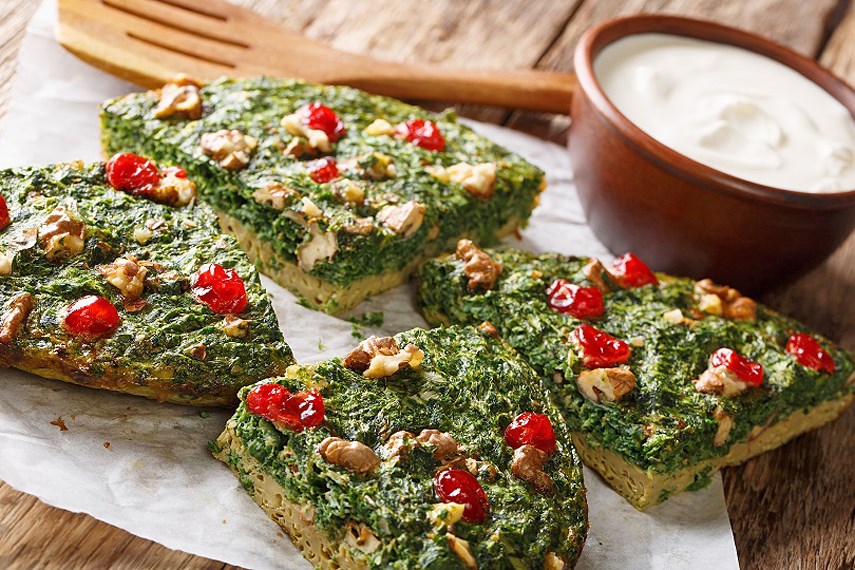Holidays are a special time of the year that brings family and friends together to celebrate the bonds that unite us. For me, a special time of the year is Persian new year, which is called Norouz.
Norouz is a big celebration for Iranian people and it is seen as a time of renewal which is celebrated with the arrival of spring. This year Norouz is being celebrated on March 20.
I really enjoy gathering with my family and celebrating Norouz.
The celebration is about feasting, visiting family members and friends and exchanging gifts. A wide range of cultural performances and traditions usually take place as well, though the pandemic has largely forced people in the community to change up their usual festivities. Families and communities share symbolic meals. My favourite one is “Sabzi polo Mahi” which means herbed rice with fish. “Sabzi” is herb, “polo” is rice and “Mahi” is fish.
This popular dish is usually made with basmati rice steamed with chopped fresh herbs. The traditional herbs used in this rice are “tareh” green nira, or garlic chives, cilantro, parsley, and dill. I love the flavour of fresh herbs mixed with fluffy basmati. Growing up, this dish was a tradition in our house for Norouz.
Another traditional vegetarian dish in Norouz is “Kuku sabzi,” which is a flavour-packed Persian frittata made with parsley, cilantro, dill, scallions and eggs to bind them together. The herbs symbolize rebirth and eggs symbolize fertility.
A few hours before the arrival of spring a traditional table is also prepared, it is called “Sofreh haft seen” with seven symbolic items beginning with the sound of “S” in Farsi.
These seven items, along with several other – such as live gold fish in a bowl, coloured eggs, mirror, a Seville orange in water, candles and a traditional dish made out of crushed wheat sprouts – are included in the celebration. Each represents a wish for a happy and prosperous new year.
We also make a plate of green sprouts which symbolizes new life. It is kept till the 13th day of Norouz, when we take it out and cast it into a body of flowing water such as a river or stream.
This year my family will be celebrating Norouz at home with our immediate family and connecting with our extended family over Zoom to celebrate.
Below please find a recipe from YummyNotes for Kuku sabzi. Happy Persian new year!
Kuku Sabzi Recipe
Serves: 8 Prep Time: 10 Minutes Cooking Time: 30 Minutes 30 Minutes
Nutrition facts: 200 calories 20 grams fat
Ingredients
2 cups chopped fresh flat-leaf parsley
2 cups chopped chives (Iranian tareh)
1 cup chopped fresh dill
1 cup chopped cilantro
2 tablespoons barberries (zereshk), rinsed
2 tablespoons walnuts, chopped
6 large eggs
1/3 teaspoon turmeric
1 teaspoon salt
1/2 teaspoon pepper
1 tablespoon flour
1 teaspoon baking powder(optional)
Vegetable oil or olive oil
Instructions
Step 1
Beat eggs with a fork or whisk just until the yolks and whites are blended.
Step 2
Add all the chopped herbs, barberries, walnuts, turmeric, flour, baking powder, salt and pepper, mix until combined.
Step 3
For pan fried kuku sabzi warm up a pan with some oil to a high heat and once the oil gets hot you add the mixture to the pan and cook for about 20 minutes on medium heat. Cut the kuku into four pieces and carefully flip each piece and cook for another 20 minutes.
For oven baked Kuku Sabzi pour the herb mixture into a well-oiled baking dish. Place in a 350 F preheated oven for about 30 minutes. Remove from the oven and cool for a few minutes then turn upside down on to a flat serving plate. Cut Kuku into serving-size pieces.
Recipe Source: yummynotes.net.
Sara Abtahi is certified nutritional practitioner and nutritional consultant at Choices Market in North Vancouver (801 Marine Dr.). You can connect with Sara in store on Wednesday and Thursday mornings and afternoons and by email at [email protected]. She can provide nutrition education both in English and Farsi.


.jpg;w=120;h=80;mode=crop)